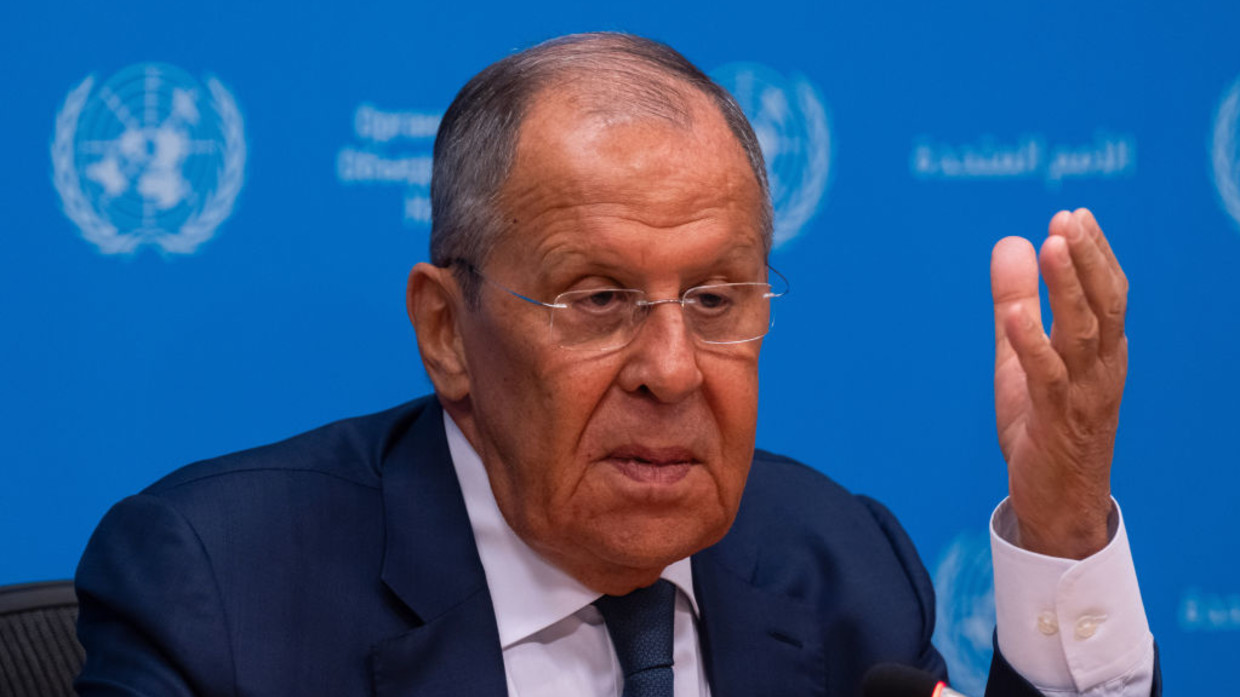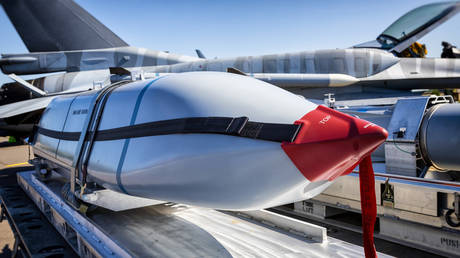The US is well aware that any decision to supply Ukraine with long-range missiles crosses Moscow’s “red lines” and could trigger a third world war, Russian Foreign Minister Sergey Lavrov has warned.
American officials are “close” to approving the supply of long-range cruise missiles to Kiev, Reuters reported on Tuesday, citing anonymous sources. The missiles in question – Joint Air-to-Surface Standoff Missiles (JASSM) – have a range of up to 900km and can be fired from Ukraine’s Western-supplied F-16 fighter jets.
“The Americans have already stepped over the red line that they set up,” Lavrov told reporter Pavel Zarubin on Wednesday, referring to Washington’s long-standing reluctance to provide Ukraine with weapons capable of striking deep inside Russian territory.
“They’re emboldened, and [Ukrainian leader Vladimir] Zelensky certainly sees this and uses it,” Lavrov continued. “But they need to understand, they’re joking about our red lines. Don’t joke about our red lines. They know perfectly well what they are.”
Last month, Lavrov declared that the US and its allies would be “asking for trouble” if they lifted their rules prohibiting Ukraine from launching long-range strikes against Russia.
“I’d like to again quote a statement by [White House National Security Council spokesman John] Kirby, who said that [the US] should be very careful about increasing support for Ukraine so as to avoid World War III,” Lavrov told Zarubin.
Back in June, Kirby said that a major escalation of the Ukraine conflict could have “disastrous consequences, potentially across the European continent” and would harm US interests in the region.
Zelensky maintains that the West shouldn’t fear escalation from Russia, and that Ukrainian forces’ incursion into Russia’s Kursk Region proves that Moscow has no “red lines.” However, while Russia has typically been loath to respond to provocation by either Kiev or the West, it has continued to fight in a manner that favors its strengths – namely its massive advantages in artillery, missile stocks, and manpower.
Kiev’s attacks on the Crimean Bridge, for example, were met not by reciprocal attacks on Ukrainian civilians, but by massive and crippling missile strikes on the country’s energy infrastructure. Likewise, the presence of Western military instructors in Ukraine has been met with precision strikes on their positions, which the Russian Defense Ministry usually announces days later.
While Ukraine’s top military commander hoped that the Kursk operation would trigger an overreaction from Russia and force Moscow to pull troops from a busy sector of the front line near Donetsk, Russia did not take the bait. Instead, Moscow surged more troops to Donetsk, where they have breached Ukrainian lines and closed in on several key strongholds.


